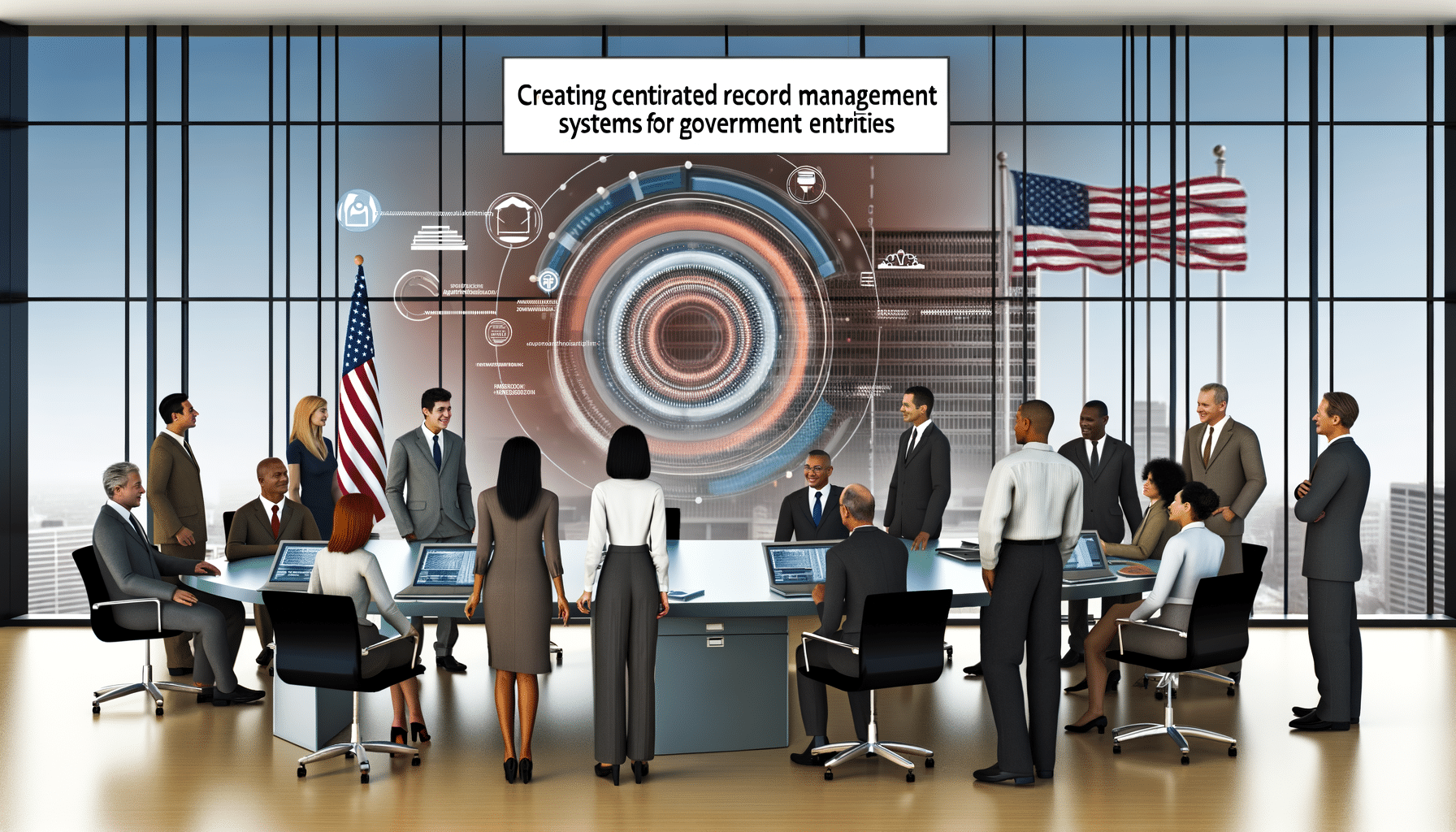- Centralized Management
- May 11, 2024
Creating Centralized Record Management Systems for Government Entities

Revolutionizing Record Management for Government Entities
In the intricate, fast-paced world of government operations, managing records efficiently is not just a requirement—it’s a necessity. Whether you’re overseeing public health data, legal documents, or compliance records, the ability to access and maintain these documents accurately can significantly impact operational efficiency. Despite its importance, record management often remains a painstaking, manual process burdened with challenges. Let’s delve into how integrating a centralized record management system can transform government operations and lead us toward a future of streamlined, efficient governance.
Embracing Centralization for Efficiency
When government entities rely on disparate systems to house their records, they often face challenges such as duplication, data inconsistency, and security vulnerabilities. A centralized system not only reduces these risks but also bolsters management efficiency. By leveraging AI technology to automate categorization and enhance searchability through natural language processing, centralized systems—like RecordsKeeper.AI—ease document retrieval. This centralized access ensures that government employees spend less time rummaging through stacks of files and more time focusing on community-impacting work.
Enhancing Security and Compliance
Security breaches in government sectors can have dire repercussions. This is where the integration of Blockchain technology shines, offering an additional layer of security with its tamper-proof, immutable records feature. By centralizing record management, government bodies not only enhance their security stance but also automate compliance with industry standards like GDPR, HIPAA, and SOX. To further illustrate, our system’s compliance management tools facilitate regulatory workflows, helping maintain transparency and adhere to legal requirements without manual overhead.
Improving Data Accessibility and Collaboration
Often, government operations require collaboration across various departments. By forming a single source of truth, a centralized system fosters better communication and collaboration. For instance, managing a community health crisis or a legal case becomes far more efficient when data can seamlessly cross departmental boundaries in a secure and controlled manner.
- Utilize AI-driven retrieval for immediate access to crucial records.
- Promote interdepartmental transparency to speed up decision-making processes.
- Control sensitive information sharing through secure data rooms.
Streamlining Backup and Recovery
Natural disasters and cyber-attacks pose a significant threat to record integrity. Maintaining a robust backup and recovery protocol is integral to any government operation. Automated backup solutions within a centralized system ensure that files are consistently updated, allowing for quick recovery in the face of data loss. Such systems, like ours, lessen the risk of unexpected downtime and protect important records from becoming irretrievable.
Ensuring Policy Adherence and Audit-Readiness
Managing policies within a government setup can be complex, but centralization simplifies it significantly. With the ability to enforce data retention and deletion policies automatically, records are preserved or deleted in accordance with current governmental policies. Furthermore, this not only makes audits more straightforward but also augments audit-readiness through comprehensive audit logs and reports.
The Strategic Advantage of Centralization
Shifting from traditional, siloed record-keeping practices to a centralized approach offers a strategic advantage to government entities. It fosters transparency, fortifies security, and optimizes resource allocation—all of which contribute to better governance.
As founders of RecordsKeeper.AI, we are pioneering solutions aimed precisely at these challenges—all so government bodies can focus on a broader mission: to serve, safeguard, and advance public interests efficiently. I invite you to explore this transformative path with us and witness the multifaceted benefits of a centralized record management system.
For more insights on our journey in integrating AI and Blockchain technologies or if you’re ready to embrace centralized systems, follow me, Toshendra Sharma, as we pave the way towards modernizing record management.
Toshendra Sharma is the visionary founder and CEO of RecordsKeeper.AI, spearheading the fusion of AI and blockchain to redefine enterprise record management. With a groundbreaking approach to solving complex business challenges, Toshendra combines deep expertise in blockchain and artificial intelligence with an acute understanding of enterprise compliance and security needs.
Archives
- December 2024
- November 2024
- October 2024
- September 2024
- August 2024
- July 2024
- June 2024
- May 2024
- April 2024
- March 2024
- February 2024
- January 2024
- December 2023
- November 2023
- October 2023
- September 2023
- August 2023
- July 2023
- June 2023
- May 2023
- April 2023
- March 2023
- February 2023
- January 2023
- December 2022
- November 2022
- October 2022
- September 2022
- March 2019
Want to get more content like this?
Signup to directly get this type of content to your inbox!!
Latest Post
Organizing External Auditor Access
- December 22, 2024
Document Control in Manufacturing Plants
- December 21, 2024
Handling Rush Financial Report Requests
- December 20, 2024
Managing Record Access After Staff Changes
- December 19, 2024





